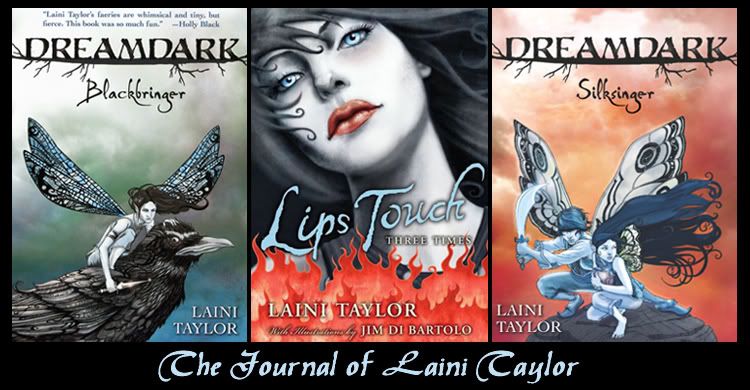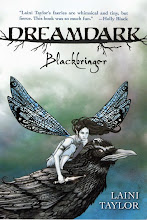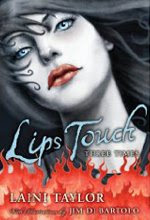 Sooo, yesterday I wrote a little about making progress through the middle of a novel, and how for me it is kind of like swimming from one buoy to the next -- meeting small goals and wanting to stay there clinging to that little bit of achievement instead of striking out toward the next goal. Almost all day yesterday, I was clinging to a buoy, trying to do anything but stare at the next chapter heading and the blank space beneath it.
Sooo, yesterday I wrote a little about making progress through the middle of a novel, and how for me it is kind of like swimming from one buoy to the next -- meeting small goals and wanting to stay there clinging to that little bit of achievement instead of striking out toward the next goal. Almost all day yesterday, I was clinging to a buoy, trying to do anything but stare at the next chapter heading and the blank space beneath it.I've said before, it's a rule for me to never stare at a blank page. If I find myself doing that, it's straight to the working doc (or sometimes I feel the need to write by hand in a notebook) to write about the scene at hand and brainstorm, or else to freewrite, which pretty much always gives me some way into the scene at hand. What I need when beginning something, be it a book, a chapter, or a scene, is a little something to hold onto (yeah, kind of like a buoy). How to explain this without examples? Hm. Hmmmm. . .
I need the scene to become just real enough in my mind that I have a way of framing it that lets me in. In the case of the teeny-tiny but important *breakthrough* I finally got at around 10:30 last night, it was just an insight into my character's state of mind, bridging the last chapter to the new one, that gave me a starting point. Ah! She'd have her feelings hurt because of [something], and she'd be feeling a little wounded and spiteful, and so she'd do [this.] And I found a first line, a first paragraph, etc. Nothing genius, and maybe it'll get revised out, but it's a place where I can wade in. Not all chapters are difficult to start, but this is the first one after finishing a "section" that I had in my mind as a whole. Now I'm starting on a new "section" and the feelings are a lot like starting a new book.
So I guess I just wanted to say that it took me hours of brainstorming to finally get a very basic insight that allowed me to wade mincingly into the new section.
And I also wanted to say that: writing advice is a funny thing. I know that what works for me won't work for a lot of people. Yesterday (when I should have been writing) I followed a chain of links that led me to this piece about fighting perfectionism. Of course, I hoped to find a trick I might use, but in fact, though she describes the affliction of perfectionism extremely well, and though I think her tips are great advice, I have learned that they aren't in fact the optimal way to get my own particular brain to do what I want it to do. Not that she's wrong! I'm sure she's right that it's better not to reread what you've written, and to shut off your inner critic. It must be better than the endless rereading that I do. But. Nevertheless. I have given myself permission to proceed with my own painstaking process, efficiency be damned.
I tried to write a different way recently. I wrote a NaNo manuscript with my inner critic shut away in a pickle jar, and without reading what I wrote as I went. I zipped through to the end like one long freewrite. And you know what? At the end of it, you couldn't have paid me to read what I had written. I still haven't read it! Working that way killed all interest I had in that story. Personally, I need to fall in love with a story sentence by sentence. I need to fit pieces of plot together with the care of a jeweler setting gems -- picture me, little jeweler's glass stuck in one eye, tiny tweezers in my hand, working very slowly. I need the joy of craft to keep me engaged. I need to reread what I've written and be thrilled with it and proud of myself and in love with my words, and then go on.
That's me. I'm just saying: take all writing advice with a grain of salt. You might need to ignore even the most logical and sound advice; your brain needs what it needs; learn your own mind, develop your own owner's manual to your brain, and proceed accordingly.
The end.









12 comments:
Hi Laini -- Love the galloping skeleton. That gaping jaw has such gleeful abandon, as I think I would if I could gallop.
I'm finding my biggest "rule" is: be open and flexible. Today I wrote a few pages, knowing it wasn't working but unsure what else to do but keep trying. Hours later THE paragraph came to me (inconveniently, in a work meeting, but at least I had a pad and pen). Now why couldn't I have written that this morning? My muse is capricious and elusive.
Humbless is important, but so is raw, fist-clenched, never-give-up belief. Otherwise how do we ever let go of the buoy and plunge for the next one? Hm, maybe I'm thinking of a trapeze....
I wrote a NaNo manuscript with my inner critic shut away in a pickle jar, and without reading what I wrote as I went. I zipped through to the end like one long freewrite. And you know what? At the end of it, you couldn't have paid me to read what I had written. I still haven't read it! Working that way killed all interest I had in that story.
I had this IDENTICAL experience last April when I tried to do the same thing. I'm redrafting the same book now, but I've used only a tiny fraction of those 50,000 words I wrote on fast forward in an effort to "free myself".
One day I will understand my own process and learn to work happily with it; but in the meantime, it seems, I have a whole lot of flailing to do.
"Flailing" is pretty much what I do on a regular basis. Mostly, I write chapter by chapter in a two-steps-forward, one-step-back sort of way. I absolutely have to read the last chapter that I wrote just to get back into the story, unless it's been only a short while since I last wrote. Because I don't know where/when I'll next have a chance to write, it's the best way to remind myself of where I am. I do outlines, but I rarely stick to them. It's maddening, but it's just what works for me at the minute.
I have tried and tried to adopt the 'shitty first draft' approach. I know I talked on my blog about laying down the skeleton and going back and fleshing it out, but I STILL have to be loving the words, as you say, which is why the first half of my draft takes forever. Like you, if I wrote from start to finish I would be overwhelmed by a whole manuscript that is, well, sh*t. I find it much easier to partially, at least, revise as I go. My fleshing out is more about adding scenes and character that I can see at teh end need to be there to contribute to the whole. But i need that critic on at least a little bit.
I always carry my printed out chapters around with me. And I am always whipping them out and reading them and making notes, and some days I will put those notes to use and revise and then print out again. So my printouts read Chapters 1.5, 2.3, 3.2, 4.1 etc etc.
It's always good to know other writers have the same manias as me! It helps offset the bitterness of hearing about bestsellers written in a few weeks, etc etc :-)
Hmmm, interesting thoughts.
I've been thinking lately about how every author has a different writing process, and how each way of creating a story is unique, now matter how many books have been written before.
I, too, despise my nano manuscripts. They are garbage, and it hurts to see characters and story I was once excited about that way. I don't want to re-read or edit it. I want to re-create it, better than before, from scratch.
Maybe I should try a more perfectionist route...
I love that: an owner's manual to your brain. It seems like so much of getting your art out is getting to know the process that works for you. It reminds me of a picture book manuscript I read today about a little rabbit boy that won't hop when all the other little rabbits start hoping. He just doesn't feel ready. His parents worry and fret. They take him to the doctor. Grandpa gives him a stern talking to. But the boy bunny just won't do it. They enroll him in hopping classes. They try everything. Finally, one day, when they've given up, the boy bunny feels a little itch in his leg muscles. He decides he's ready and he...hops! There's a lot of pressure to do things a certain way---whether it's learning to walk or writing a novel---and to do these things quickly. But if we get in touch with our inner little bunny, he knows when and how he needs to do things. It takes conviction, a belief in oneself. Very, very difficult to do given our cultural circumstances!
I'm an Endless Rereader, too.
Pretty much every time I open a document, I reread a scene and change something.
That's just how I roll, yo.
:-)
Me too, LK and Laini, me too!!!
Whatever works is my motto. :)
Next time I start a new project, I'm totally trying the working document thing though!
Know Thyself: The Writer's Edition! It's true, what works for other people is often a complete disaster for others. I have to revise as I go. For me, it's mostly about coming to a deeper understanding of the character and her motivations--which then changes what happens next. If I wrote as fast as I could, none of that understanding would happen. I'm sure some people can do it (bestsellers written in a few weeks...grrr!!) but alas, not me. I feel in very good company here. :)
Thanks for writing on writing again. I have to re-read to get back into it too, and I get caught up in revising. I can't help it, and I'm not sure I even want to. I like revising. But then, I'm a painfully slow writer.
Hi there!
I wrote that little post on fighting perfectionism. I completely agree with you--every writer needs to find her or his own way through frustrations of writing. I am glad to learn how others do it, so I can try something new once in a while.
I have to admit that I had a similar experience with NaNo. I finished my 50,000 word novel, and I just can't find anything much in it to flesh out. I'm glad I did it, but perhaps that pace is just too fast for me to do my best work.
Perhaps there's a happy medium between lingering too long in our words and rushing too quickly by them. That's the place I'm striving to find.
Post a Comment